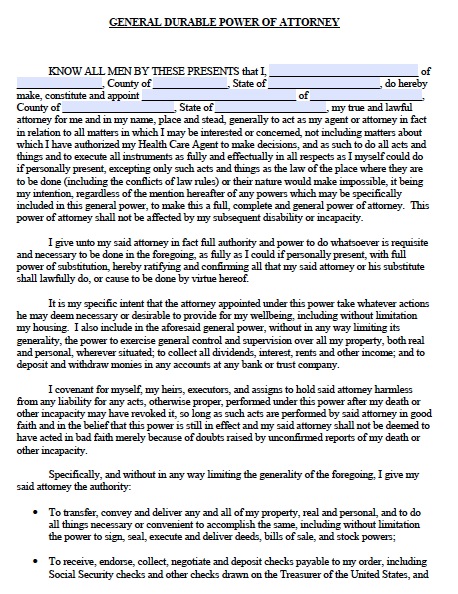Attorney Approved Version!
A financial power of attorney lets you grant an agent rights to control your property, money, and business operations. Some lawyers advocate using a power of attorney that grants more specific rights, however, because in Massachusetts, institutions have sometimes failed to honor a document that allowed the agent to do absolutely anything with the principal’s property.
In Massachusetts, you can grant the agent broad authority to manage the following subjects on your behalf.
Real estate
Stocks and bonds
Personal property
Bank accounts and other financial accounts
Litigation
Retirement plans
Taxes
Business
Insurance
Estates and Trusts
You should exercise special care when choosing an agent, and pick only someone you have the utmost trust in. Make sure he or she understands precisely how to manage your finances. In Massachusetts, you must have the document signed by two witnesses.
Laws – Part II, Title II, Chapter 190B, Article 5
Signing Requirements – Specific signing requirements for executing a durable power of attorney are not mentioned under Massachusetts law. The Principal should still seek acknowledgment from either a notary public or two credible witnesses in order to attest their signature. However, note that any delegation by, or at the direction of, a parent/guardian of a minor or incapacitated person must sign in the presence of two (2) witnesses of 18 years of age or older, neither of whom is the temporary agent. (Section 5-103.)
Sources

